BMW X1 vs Toyota Yaris Cross - Differences and prices compared
Compare performance (326 HP vs 130 HP), boot space and price (38200 £ vs 23700 £ ) at a glance. Find out which car is the better choice for you – BMW X1 or Toyota Yaris Cross?
Costs and Efficiency:
When it comes to price and running costs, the biggest differences usually appear. This is often where you see which car fits your budget better in the long run.
Toyota Yaris Cross has a significantly advantage in terms of price – it starts at 23700 £ , while the BMW X1 costs 38200 £ . That’s a price difference of around 14537 £.
Fuel consumption also shows a difference: BMW X1 manages with 2.50 L and is therefore significantly more efficient than the Toyota Yaris Cross with 4.50 L. The difference is about 2 L per 100 km.
Engine and Performance:
Power, torque and acceleration are the classic benchmarks for car enthusiasts – and here, some clear differences start to show.
When it comes to engine power, the BMW X1 has a convincingly edge – offering 326 HP compared to 130 HP. That’s roughly 196 HP more horsepower.
In acceleration from 0 to 100 km/h, the BMW X1 is significantly quicker – completing the sprint in 5.40 s, while the Toyota Yaris Cross takes 10.70 s. That’s about 5.30 s faster.
Space and Everyday Use:
Cabin size, boot volume and payload all play a role in everyday practicality. Here, comfort and flexibility make the difference.
Both vehicles offer seating for 5 people.
In curb weight, Toyota Yaris Cross is noticeable lighter – 1180 kg compared to 1575 kg. The difference is around 395 kg.
In terms of boot space, the BMW X1 offers clearly perceptible more room – 540 L compared to 397 L. That’s a difference of about 143 L.
When it comes to payload, Toyota Yaris Cross minimal takes the win – 510 kg compared to 500 kg. That’s a difference of about 10 kg.
Who wins the race in the data check?
The BMW X1 is far ahead overall in the objective data comparison.
This result only shows which model scores more points on paper – not which of the two cars feels right for you.
Costs and Consumption
View detailed analysis
Engine and Performance
View detailed analysis
Dimensions and Body
View detailed analysis
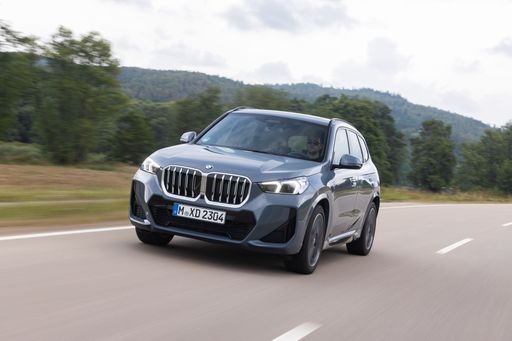
BMW X1
BMW X1
The BMW X1 brings a premium feel to compact crossover life, wrapping practical space and agile handling into a tidy, upscale package. It’s ideal for buyers who want BMW driving dynamics without the bulk, offering everyday comfort and a few clever tricks to keep the commute interesting.
details
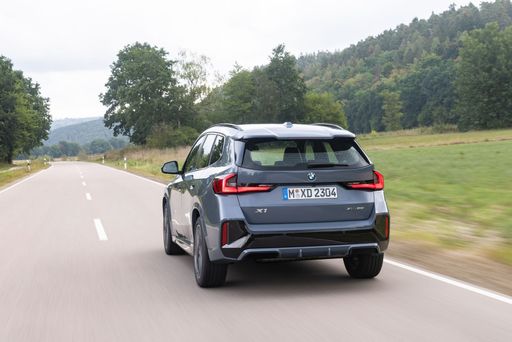
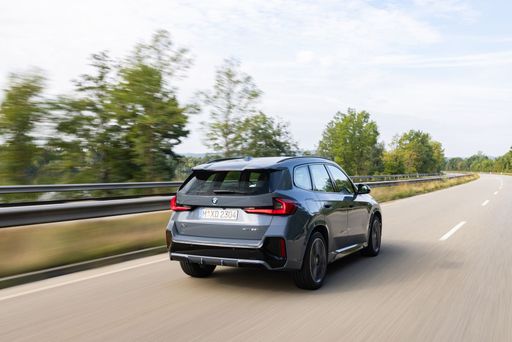
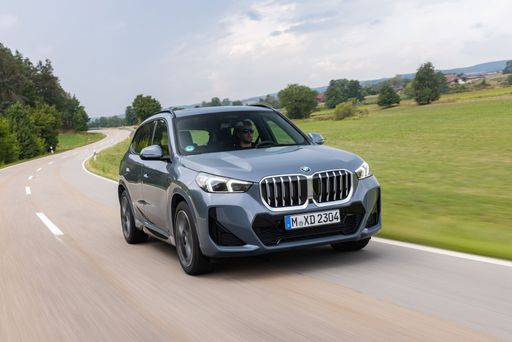
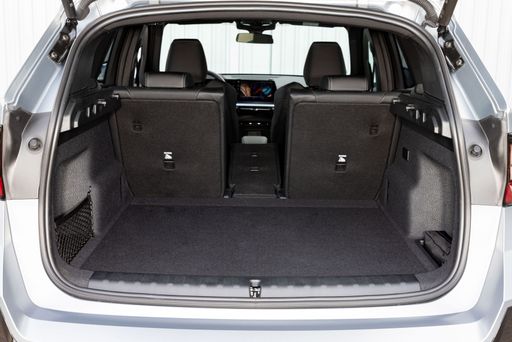
Toyota Yaris Cross
The Toyota Yaris Cross takes the jaunty personality of the Yaris and gives it a taller stance and a bit more practicality, so you get city-friendly agility with added SUV presence. It’s easy to live with, economical on the daily grind, and smartly packaged — a sensible pick for buyers who want fuss-free transport with a touch of character.
details






Costs and Consumption |
|
|---|---|
|
Price
38200 - 55500 £
|
Price
23700 - 34300 £
|
|
Consumption L/100km
2.5 - 7.7 L
|
Consumption L/100km
4.5 - 4.8 L
|
|
Consumption kWh/100km
-
|
Consumption kWh/100km
-
|
|
Electric Range
81 km
|
Electric Range
-
|
|
Battery Capacity
14.20 kWh
|
Battery Capacity
-
|
|
co2
57 - 175 g/km
|
co2
101 - 108 g/km
|
|
Fuel tank capacity
47 - 54 L
|
Fuel tank capacity
-
|
Dimensions and Body |
|
|---|---|
|
Body Type
SUV
|
Body Type
SUV
|
|
Seats
5
|
Seats
5
|
|
Doors
5
|
Doors
-
|
|
Curb weight
1575 - 1935 kg
|
Curb weight
1180 - 1290 kg
|
|
Trunk capacity
490 - 540 L
|
Trunk capacity
320 - 397 L
|
|
Length
4500 mm
|
Length
-
|
|
Width
1845 mm
|
Width
1765 mm
|
|
Height
1630 - 1642 mm
|
Height
-
|
|
Max trunk capacity
1495 - 1545 L
|
Max trunk capacity
-
|
|
Payload
490 - 500 kg
|
Payload
485 - 510 kg
|
Engine and Performance |
|
|---|---|
|
Engine Type
Diesel MHEV, Petrol MHEV, Petrol, Diesel, Plugin Hybrid
|
Engine Type
Full Hybrid
|
|
Transmission
Automatic
|
Transmission
Automatic
|
|
Transmission Detail
Dual-Clutch Automatic
|
Transmission Detail
CVT
|
|
Drive Type
Front-Wheel Drive, All-Wheel Drive
|
Drive Type
Front-Wheel Drive, All-Wheel Drive
|
|
Power HP
136 - 326 HP
|
Power HP
116 - 130 HP
|
|
Acceleration 0-100km/h
5.4 - 9.2 s
|
Acceleration 0-100km/h
10.7 - 11.3 s
|
|
Max Speed
190 - 233 km/h
|
Max Speed
-
|
|
Torque
230 - 477 Nm
|
Torque
-
|
|
Number of Cylinders
3 - 4
|
Number of Cylinders
3
|
|
Power kW
100 - 240 kW
|
Power kW
85 - 96 kW
|
|
Engine capacity
1499 - 1998 cm3
|
Engine capacity
1490 cm3
|
General |
|
|---|---|
|
Model Year
2024 - 2025
|
Model Year
2026
|
|
CO2 Efficiency Class
D, E, F, B
|
CO2 Efficiency Class
C
|
|
Brand
BMW
|
Brand
Toyota
|
Is the BMW X1 offered with different drivetrains?
The BMW X1 is offered with Front-Wheel Drive or All-Wheel Drive.
